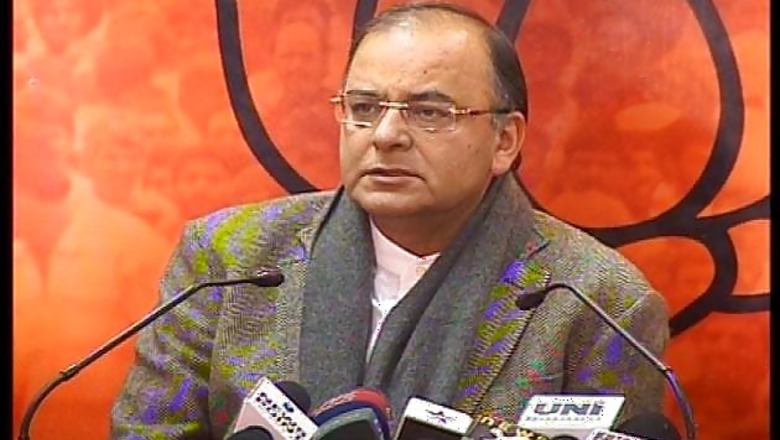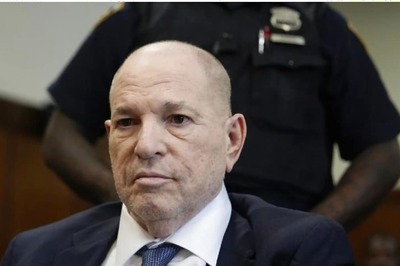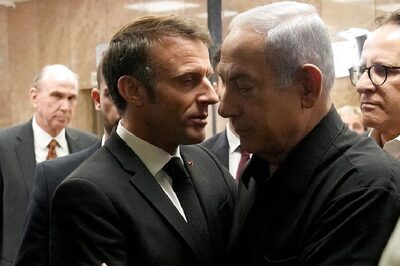
views
New Delhi: Senior Bharatiya Janata Party leader Arun Jaitley hit out at Congress Vice President Rahul Gandhi for comparing BJP's prime ministerial candidate Narendra Modi to Adolf Hitler. He said that the only Indian politician in post independence India who drew inspiration from Adolf Hitler was Indira Gandhi. The comparison between Hitler and her was startling.
Here is the full text of the blog
Yesterday I heard a few extracts of the speech delivered by Rahul Gandhi in Gujarat. He compared Narendra Modi to Adolf Hitler. Rahul Gandhi may have been a young child in 1975 when his grandmother Smt. Indira Gandhi as Prime Minister decided to proclaim the internal emergency. Surely, he is not unaware of what happened during those nineteen months of the Emergency. I was a college student at that time. As a Students Union Leader and an activist in JP's movement I spent the next nineteen months in prison. I came across a document being circulated as a part of the underground literature which was titled 'A Tale of Two Emergencies'. I was later told that it had been authored by Shri LK Advani. This document is even now available as an annexure to Advani ji's prison memoirs titled 'A Prisoner's Scrap Book'. The document was based on the authentic work of history of Nazi Germany by William Shirer. Shirer's book was titled 'The Rise and Fall of Third Reich' I obtained a copy of the book in prison and spent a few weeks reading it. After reading the book I had no doubt that the only Indian politician in post independence India who drew inspiration from Adolf Hitler was Smt. Indira Gandhi. The comparison between Hitler and her was startling.
Hitler became the Chancellor of Germany in January 1933. Within a month he invoked the emergency powers for 'the protection of the people and the state'. He restricted personal liberty, free speech, fundamental rights and imposed various restrictions on the right to privacy. The ostensible reason for proclamation of emergency was a Communist conspiracy to burn down governmental buildings. The pretext was that a day before the proclamation of emergency there was a fire at the Reich Stag. Much later the Nuremberg trials established that the fire had been engineered to provide a false pretext. Indira ji also proclaimed the Emergency in India on 26th June 1975. She claimed that JP was leading an agitation where Armed Forces were being asked to defy illegal orders. She therefore suspended all fundamental rights including the right to life and liberty. She imposed censorship on the Press, compromised judicial independence. Her Attorney General pleaded before the Supreme Court that in the absence of the right to life and liberty a detenu could be killed in prison and he had no recourse. A pliable Supreme Court accepted this argument.
Indira ji announced a Twenty Point Economic programme and insisted the Emergency was intended for discipline and growth. Hitler had also announced a 25-Point Economic Programme which was to be implemented during the emergency.
Hitler did not command a two-third majority in the German parliament. He therefore detained 91 Opposition MPs in order to reduce the voting strength of the House and amended the constitution giving to him absolute power. Indira ji detained a large number of opposition MPs and brought about draconian 42nd Amendment to the Constitution which had to be substantially repealed after the Emergency. She went a step further and even prohibited the publication of Parliamentary proceedings. The law which provided immunity to the media from publishing parliamentary proceedings was repealed. Curiously, this law had been proposed by Rahul Gandhi's grandfather, the Late Shri Feroze Gandhi.
The tenor of the statement by supporters of the two emergency regimes was similar. Goebbels, Hitler's propaganda minister declared - 'The German Revolution has begun'. In India it was claimed that the country was passing through "something of a revolution". The media could not publish any news item without subjecting it to prior censorship. The White Paper on Misuse of media during the Emergency gives illustrations of the kind of censorship which came into existence. Gandhi family newspaper 'The National Herald' advocated that a one-party set up was desirable, It should not be forced but allowed to emerge by a natural evolution. All Opposition activists in the country were detained. They were whisked away in the midst of darkness. The Police was asked to register fabricated FIRs under the Defence of India Rules against Opposition activists. Lakhs of false FIRs were registered. Thousands of persons were detained under the Maintenance of Internal Security Act. The law was amended to mandate that no grounds of detention were necessary to be provided. Additionally, the judgement of the Supreme Court in Habeas corpus case reaffirmed that these malafide orders of detention were non-justiciable.
The Constitution was amended by the 39th Amendment making even electoral offences committed by the Prime Minister as non-justiciable. The inspiration for this came from the Nazis wherein Nazi leader Joachim von Ribbentrop who later became Hitler's External affairs Minister advocated a new legal system since "Adolf Hitler too like any other common mortal can be tried under the same paragraph of the penal law". The Congress President Dev kant Barua declared "Indira is India and India is Indira". Hitler's Commissioner of Justice Dr. Hans Frank had declared that "There is in Germany today only one authority and that is the authority of Fuehrer". Hitler created a secret police called the Gestapo whose orders like the MISA orders were not subject to judicial review.
Suspension of democracy, abrogation of civil liberties, detention of political opponents, suspension of democratic activity, abandonment of free Press, absence of judicial independence and vestige of power in one person were features of Hitler's regime. Each step had inspired Indira ji's internal Emergency. There was one basic difference between the two. Hitler did not promote a dynasty because he did not have any one to promote.




















Comments
0 comment